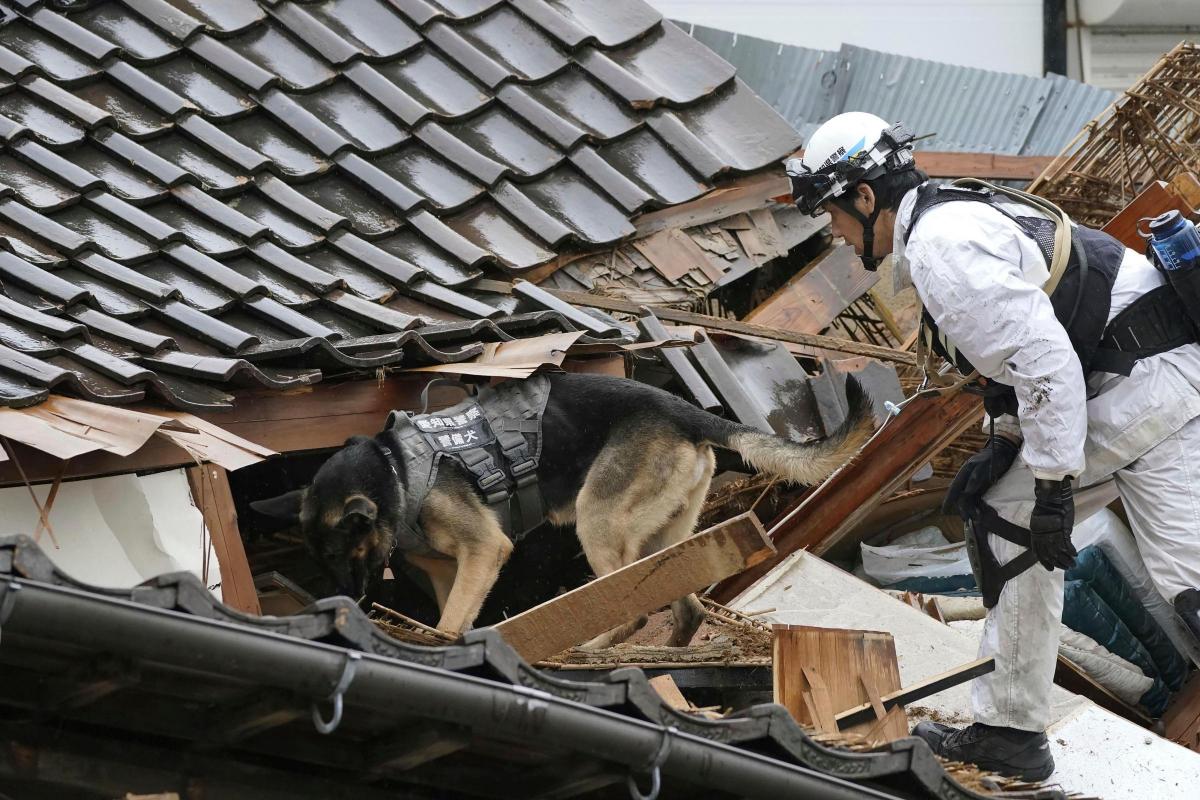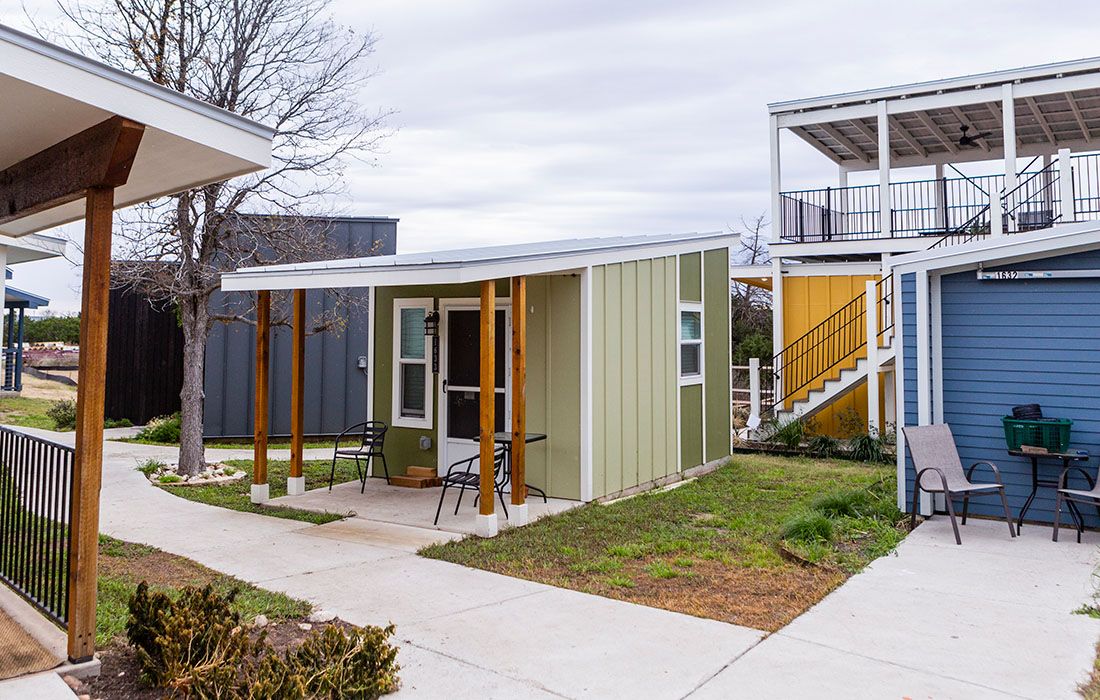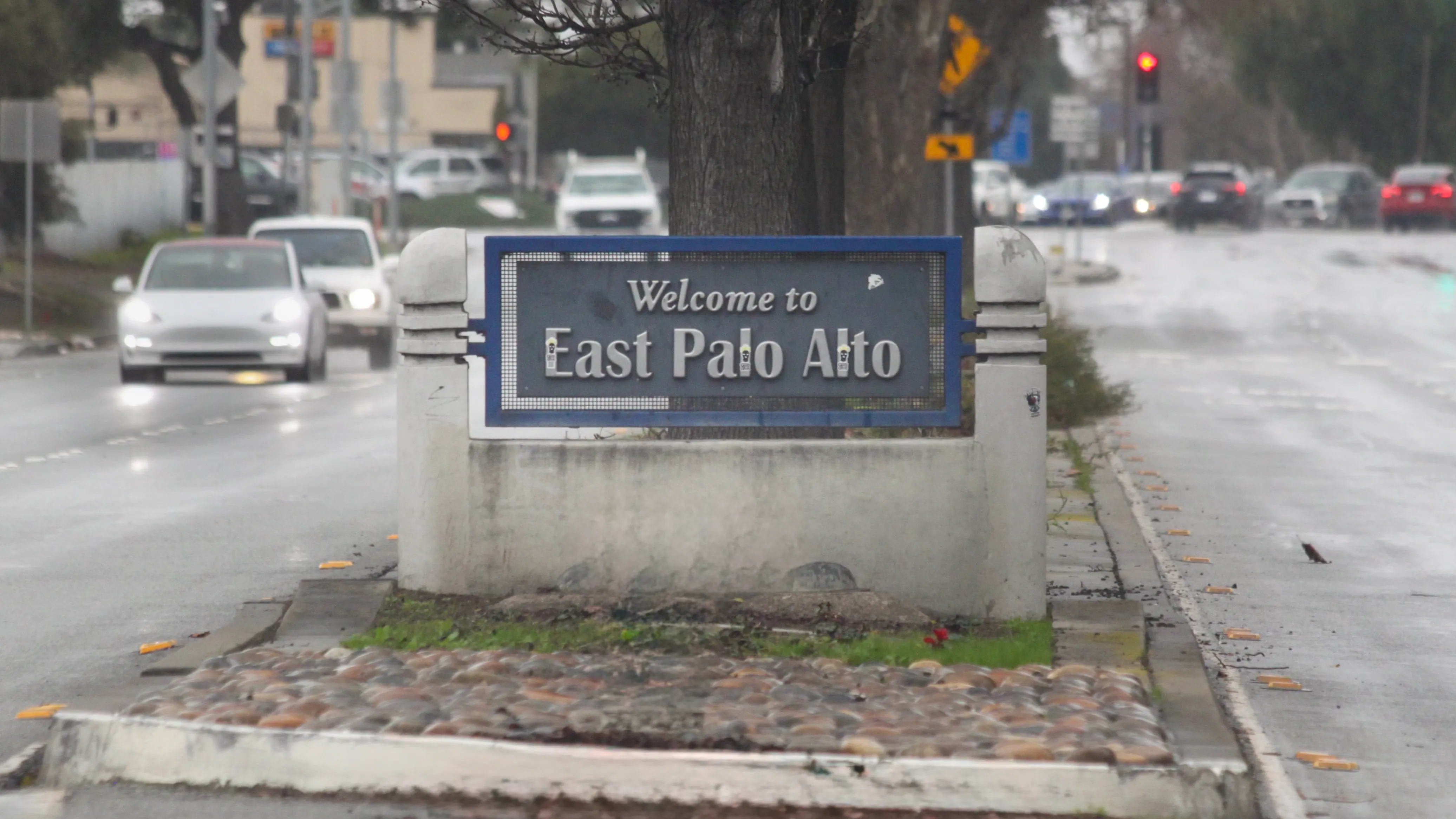A Race Against Time: Japan's Battle to Rescue Those Trapped
Japan recently experienced a series of powerful earthquakes causing widespread devastation and triggering tsunami warnings. Although the alerts have been lifted the country is facing a critical situation with the urgent need to rescue people trapped under collapsed buildings. The prime minister has declared a "battle against time" to save lives and provide assistance to those affected.
Rescue operations are underway but they are being hampered by damaged roads and infrastructure. In the worst-hit area the Noto peninsula the situation is particularly challenging with one of the airports forced to shut down due to runway cracks. The devastating impact of the earthquakes is evident as bodies are being recovered from the rubble while others remain trapped.
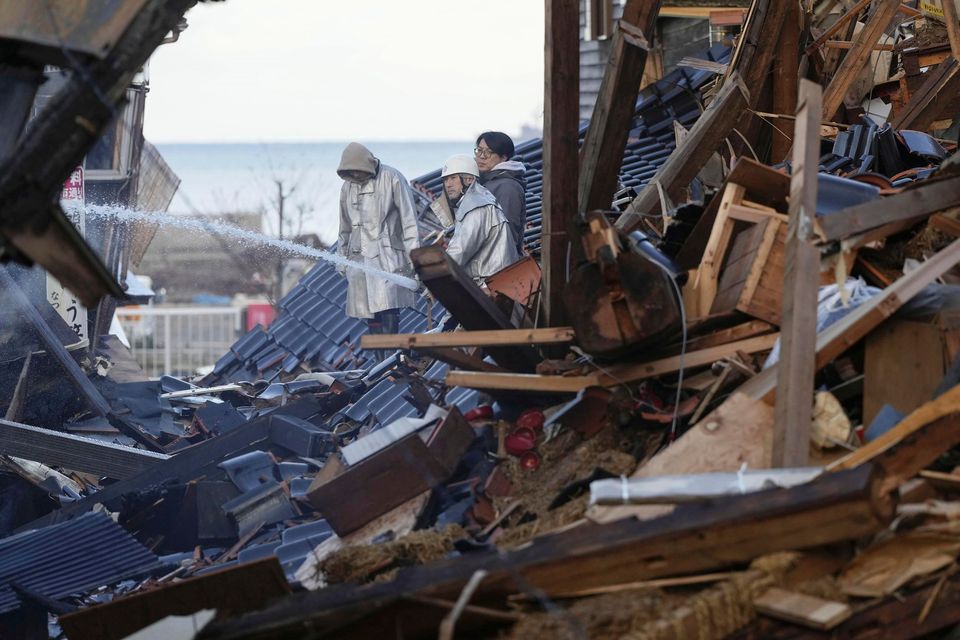
Fires Ravage Wajima City and Surrounding Areas
In Wajima City a tough situation is unfolding. After the earthquakes fires have broken out and they're causing a lot of damage. Over 100 homes and buildings have been destroyed by these fires. It's a heartbreaking scene with so many people losing their homes and places they care about.
The fires are making things even more difficult for the emergency services. These brave folks are already working super hard to rescue people and get them the help they need. Now they also have to deal with putting out these fires. It's like they're facing a double challenge but they're doing their best to handle everything.
One particular street in Wajima city Asachi-dori is known for its beautiful wooden buildings. Sadly this area has been hit hard by the fires. Right now it's tough to say exactly how the fires started or how many people have been hurt. Information is still coming in and everyone's trying to figure out the full extent of what's happened.
It's a tough time for the people in Wajima City but they're not alone. Help is on the way and everyone's working together to get through this. The focus is on putting out the fires rescuing anyone who needs help and starting to rebuild what's been lost.
The Magnitude of the Quakes and Their Impact
The earthquakes the largest of which measured 7.6 in magnitude at a shallow depth of 10km struck the west coast of Japan's main island. Despite being hundreds of kilometers away Tokyo felt the shaking highlighting the power of these seismic events. The Noto peninsula where the epicenter was located suffered the most significant loss of life and injuries. Reports suggest that many residents are either trapped under rubble missing or found unconscious.
Ongoing Aftershocks and the Need for Continued Evacuation
Although the tsunami warnings have been lifted the affected coastal areas are still at risk due to potential aftershocks. In light of this danger residents are being advised not to return to their homes. The potential for further devastation requires caution and ongoing protective measures. Authorities are taking precautions to ensure the safety of the population by evacuating them to various public buildings such as sports halls and schools.
Infrastructure Disruptions: Transport and Utilities
The earthquake's impact on infrastructure is evident with bullet trains and flights in and out of the affected region temporarily suspended. Major highways remain closed and water supplies have been disrupted due to burst pipes. Mobile phone networks in the area have also been damaged but efforts are being made to restore service gradually.
Global Support in Times of Crisis
In the wake of the earthquakes in Japan countries around the world are stepping up to offer their support. British Prime Minister Rishi Sunak has been quick to respond showing that the UK is ready to help out in any way they can. He's also looking out for British people who are in the affected areas in Japan. He's urging them to stay safe by listening to what the Japanese authorities are saying. It's like he's saying "We're here to help and let's make sure everyone stays as safe as possible."
Over in the United States President Joe Biden has also made a strong commitment to help Japan. He's promised that the US will do whatever it can to support the Japanese people during this tough time. Biden has mentioned that his team is working closely with officials in Japan making sure that the help they offer is exactly what's needed. It's like the US is saying "We've got your back."
This international support is really important. It shows that when something bad happens countries can come together to help each other out. It's about more than just one nation; it's about the global community joining hands to support those in need.
Reflecting on Past Tragedies: Fukushima's Legacy
Japan is well-acquainted with seismic activity being the most earthquake-prone nation in the world. The magnitude and impact of Monday's earthquakes however are reminiscent of the devastating quake and tsunami that struck Japan's northeast region in 2011 resulting in the loss of thousands of lives and the Fukushima Daiichi nuclear meltdowns. Since then most of Japan's nuclear power plants have been decommissioned and efforts have been made to improve safety measures.
Monitoring Radiation Levels and Reactor Safety
In the aftermath of the recent earthquakes nuclear regulators have closely monitored radiation levels in the affected region. Fortunately no significant increases in radiation have been detected at the monitoring posts in the area. Additionally there have been no reported abnormalities at the more than 20 reactors situated along the nearby coastline.
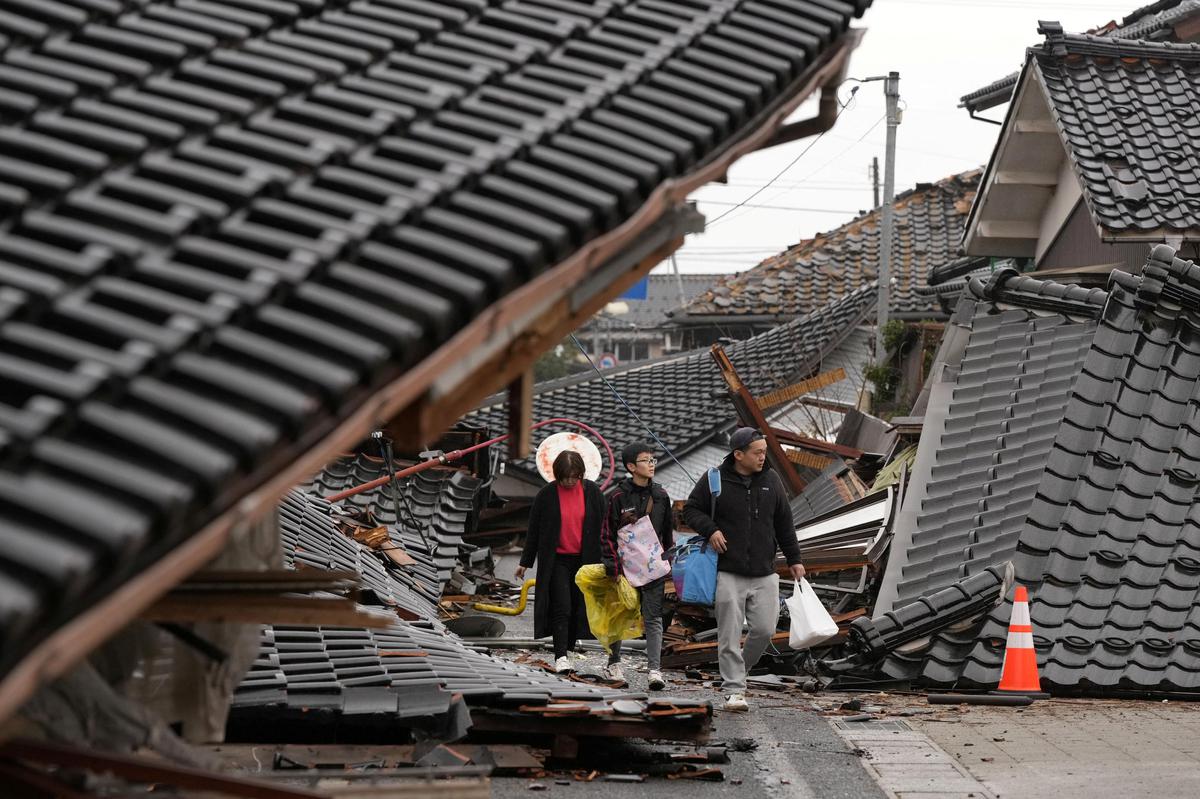
The Path to Recovery Lies Ahead
In Japan after the recent powerful earthquakes everyone's focus has shifted to rescue and recovery. It's a tough time but the strength and readiness of the Japanese people are shining through. They're known for being incredibly resilient which means they're good at bouncing back after tough situations. This resilience is going to be super important as they start to rebuild their communities and fix the damage caused by the earthquakes.
Recovery from something like this isn't easy. It's a big challenge but Japan isn't facing it alone. People and countries from all over the world are stepping in to help. It's like the whole world is coming together to lend a hand. This support from the international community is a big deal. It shows that when tough times hit people are ready to help each other out.
The journey to get everything back to normal in the affected areas is going to take time and a lot of hard work. But with the determination of the Japanese people and the help they're getting from friends around the globe there's a lot of hope. They've got what it takes to rebuild and come back even stronger than before. It's all about sticking together working hard and never giving up no matter how hard things get.

